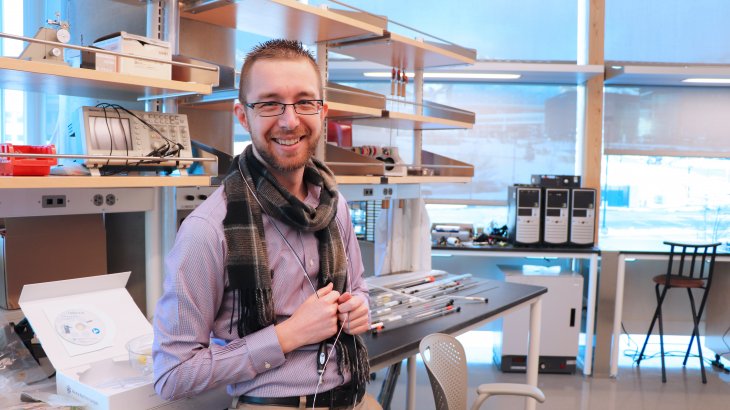When faced with adversity, instead of becoming frustrated, Nathan Knighton innovated. Knighton has always had the desire to be in STEM, as well as help people. When he and his wife had a child that needed extra medical attention, Knighton gained a unique perspective on the impact his work had the potential to achieve.
Knighton began to work on creating a better solution to biopsies. While biopsies can be necessary and informative, they often cause harm to the patient that can lead to further complications and often incur great cost in money and time. Knighton wanted to negate biopsies’ invasive, expensive, and time-consuming nature by replacing the procedures with light. Optical biopsy is a technique that allows light to interact with tissues that may be of concern and reveal its medical implications. Knighton developed smart probes, which integrate optical biopsy with existing techniques to find harmful tissues in the heart and lungs. Not only do the catheter-like devices simultaneously image and allow targeted treatments with accurate prognoses, they are cost effective and can deliver a result in minutes.
Knighton’s goal is to create a line of affordable, easy-to-use, medical products. For now, he is focusing on improving the smart probe with artificial intelligence to get a deeper, clearer image of heart tissue.
Knighton credits professors Bob Hitchcock and Frank Sachse for their support to his work.
More articles like this in ‘Student Innovation @ the U!’
Find this article and a lot more in the 2020 “Student Innovation @ the U” report. The publication is presented by the Lassonde Entrepreneur Institute to celebrate student innovators, change-makers, and entrepreneurs.




